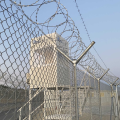
Fanatic fans or fake followers? Chinese diplomats and their social media networks
A coordinated attempt to influence social media platforms in the UK and internationally have been tracked by Oxford Internet Institute researchers, revealing dozens of false accounts and coordinated amplification networks, promoting messages by Chinese diplomats.
Two reports from the OII today, on the global situation and a UK case study, reveal the extent of the People’s Republic of China’s (PRC) strategy to ‘tell China’s story well’. The reports are based on a seven month investigation by the OII and The Associated Press (AP), and represent a global audit of social media activity by PRC diplomats and state-backed media outlets.
According to researchers, China has ‘significantly expanded its online public diplomacy efforts’. The report adds, ‘The PRC makes use of both state-controlled media outlets and over 270 diplomatic accounts on social media platforms such as Twitter and Facebook to amplify the PRC’s perspective on global affairs and current events.’
Marcel Schliebs, lead Oxford researcher, says the findings reveal, ‘The actions and reach of China’s digital publicity diplomatic campaign. They can help has develop a better understanding and response to China’s increasingly assertive global facing propaganda strategy.’
Altogether, according to the research, PRC diplomats tweeted 201,382 times, averaging 778 times a day for a nine-month period. Their posts were ‘liked’ nearly seven million times, commented on one million times, and retweeted 1.3 million times.
Altogether, according to the research, PRC diplomats tweeted 201,382 times, averaging 778 times a day for a nine-month period. Their posts were ‘liked’ nearly seven million times, commented on one million times, and retweeted 1.3 million times.
On Facebook, diplomats produced 34,041 posts over this period. But, despite high levels of activity by PRC diplomats on social media, their user accounts are rarely labelled as such. The observation period was from 9 June 2020 to 23 February 2021.
Many social networking firms have introduced transparency labelling for foreign government officials and state-controlled media organisations. Yet, these labels are often used inconsistently. For example, on Twitter only one in every eight PRC diplomat Twitter accounts is labelled as government-affiliated.
Examining closely the engagement with diplomat content on Twitter, the investigation by the Oxford researchers and the AP Global Investigations Team identified more than 8,000 accounts which retweeted PRC diplomats and were subsequently suspended by Twitter for violating the platform’s rules. The researchers say, ‘In total, more than one in ten retweets of a PRC diplomat between June and January came from an account which was subsequently banned for violating Twitter’s policies, which prohibit platform manipulation.’
On Twitter, only one in every eight PRC diplomat Twitter accounts is labelled as government-affiliated
Meanwhile, in the specific research on the UK, the team studied thousands of tweets, retweets and replies by Liu Xiaoming, the ambassador to the UK at the time of this analysis, as well as the official account of the embassy in London. Based on a forensic investigation of this data by the Oxford researchers and the AP team, a coordinated network of 62 Twitter accounts amplifying the PRC diplomats stationed in the UK was identified.
More than one in ten retweets of a PRC diplomat between June and January came from an account which was subsequently banned for violating Twitter’s policies, which prohibit platform manipulation
Marcel Schliebs, ‘In our investigation, we identify 62 accounts that show strong signs of coordination. These accounts amplify the messages from UK-based PRC diplomats at a high rate, often hundreds or thousands of times within just a few months’.
Of these accounts, 31 were suspended by 1 March 2021, two had been deleted by the user, and another 29 remained active. These 29 remaining accounts were suspended for platform manipulation after the researchers reported flagged the activity to Twitter.
The report states, ‘Many accounts impersonate UK citizens, with biographies such as “political affairs commentator from London” and usernames such as @JenniferatUK, @UKJenniferin, or @GraceUK5.’
In total, according to the report, this coordinated network accounted for 44% of all retweets of the ambassador, and 30% for the embassy account during the period being studied.
Many accounts impersonate UK citizens, with biographies such as “political affairs commentator from London” and usernames such as @JenniferatUK, @UKJenniferin, or @GraceUK5
The accounts exhibited multiple signs of coordination. ‘Nearly a third of the accounts were created within minutes of each other on just five days and the vast majority only amplify and engage with the PRC’s diplomats to the UK, but no other PRC diplomats.’
The OII team also found very similar language and keywords were used, ‘And, between June and January, two-fifths of the ambassador’s retweets and one fifth of the replies came from the coordinated network.’
The UK report continues, ‘Several of the accounts amplify the PRC’s UK-based diplomats in within just seconds of each other. In multiple cases, numerous accounts could be traced back to likely a single human operator switching operating multiple accounts in sequence.’
But, it adds, ‘As our report uses open source data, we are not able to attribute this coordinated operation to any state or non-state actor.’
The general report states, ‘In a world where social media platforms have been increasingly influential in global communications, our study has identified another area where powerful actors systematically exploit the facilities provided by these platforms. Our study provides extensive evidence for where and how a powerful state actor like the PRC may be able to create an illusion of inflated influence over global discourse.’
Our study provides extensive evidence for where and how a powerful state actor like the PRC may be able to create an illusion of inflated influence over global discourse
Calling for more research and greater cooperation with social media platforms, Marcel Schliebs adds, ‘Finding and understanding this network of coordinated accounts was a seven-month-long challenge which required a mix of methodological innovation and creativity. Future research should build on that, but every day social media users can also contribute by carefully checking what information they are consuming or amplifying while using these platforms.’
 Landmark study definitively shows that conservation actions are effective at halting and reversing biodiversity loss
Landmark study definitively shows that conservation actions are effective at halting and reversing biodiversity loss
 Researchers find oldest undisputed evidence of Earth’s magnetic field
Researchers find oldest undisputed evidence of Earth’s magnetic field
 Honorary degree recipients for 2024 announced
Honorary degree recipients for 2024 announced
 Vice-Chancellor's innovative cross-curricular programme celebrated
Vice-Chancellor's innovative cross-curricular programme celebrated
 New database sheds light on violence in Greek detention facilities
New database sheds light on violence in Greek detention facilities